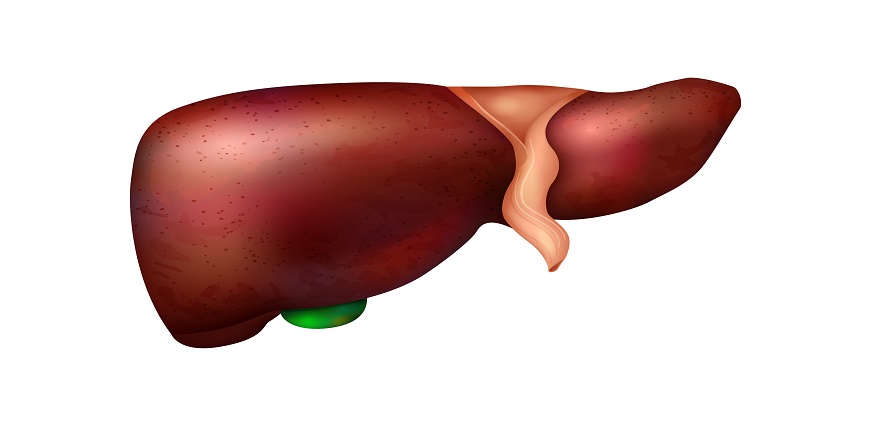





No lab centers are available in this city

Liver cancer is a type of cancer that develops in the liver. The symptoms associated with liver cancer tend to be vague and can include weight loss, stomach pain, vomiting, and yellowed skin.
Liver cancer is a type of cancer that starts in the liver. The liver is a large organ located in the upper right side of the abdomen. It is responsible for filtering blood, removing toxins from the body, and producing bile to help with digestion.
There are two main types of liver cancer: primary liver cancer and secondary liver cancer.
Symptoms of liver cancer can include weight loss, fatigue, abdominal pain, nausea, and yellowing of the skin (jaundice). If you experience any of these symptoms, it's important to see your doctor for further testing. Liver cancer is often diagnosed at later stages when it's harder to treat effectively.
If you're diagnosed with liver cancer, treatment options will depend on several factors including the stage of the disease, your overall health, and your preferences. Treatment options can include surgery, chemotherapy, radiation therapy, or targeted therapy.
There are several different types of treatment for liver cancer. The most common type of treatment is surgery. Other types of treatment include chemotherapy, radiation therapy, and targeted therapy.
Surgery is the most common type of treatment for liver cancer. The goal of surgery is to remove the tumor and as much of the surrounding tissue as possible. There are different types of liver surgery, including:
Chemotherapy uses drugs to kill cancer cells. Chemotherapy can be given intravenously (through an IV) or orally (in pill form). Chemotherapy may be used before or after surgery, or it may be used instead of surgery if the cancer has spread too far to be removed surgically.
High-energy beams, like X-rays, are used in radiation therapy to kill cancer cells.
Liver cancer symptoms can vary depending on how far the cancer has progressed. In its early stages, liver cancer may not cause any symptoms at all. As the cancer grows, it can cause a build-up of fluid in the abdomen (known as ascites), a feeling of fullness in the abdomen, weight loss, loss of appetite, and fatigue.
Lateral lobe syndrome is a serious medical condition that can lead to liver cancer. The best way to stay protected from this condition is to get regular check-ups and screenings, as well as to live a healthy lifestyle.
If you are at risk for lateral lobe syndrome, it is important to get regular full body health check-ups and screenings. This will help your doctor catch the condition early, before it progresses too far.
In addition to regular check-ups, you can protect yourself from lateral lobe syndrome by living a healthy lifestyle. Eating a healthy diet and getting regular exercise will help keep your liver healthy and reduce your risk of developing this condition.
If you are experiencing any of the liver cancer symptoms listed above, it is important to see a doctor right away. Early detection and treatment of liver cancer can improve your prognosis and increase your chances of survival. Don't hesitate to get checked out if you are experiencing any unusual symptoms — it could save your life.
 Allergy Test
Allergy Test
 Anemia Test
Anemia Test
 Auto immune
Auto immune
 Blood disorder
Blood disorder
 Bone and Joint
Bone and Joint
 Cancer Test
Cancer Test
 Cardiology Test
Cardiology Test
 Covid Recovery
Covid Recovery
 Dengue Test
Dengue Test
 Depression
Depression
 Diabetes Test
Diabetes Test
 Fatigue
Fatigue
 Fever Test
Fever Test
 Full body
Full body
 Gastro Test
Gastro Test
 Gastrointestinal
Gastrointestinal
 Gynaecology Test
Gynaecology Test
 Heart Test
Heart Test
 HIV Test
HIV Test
 Hormone Test
Hormone Test
 Hypertension
Hypertension
 Immunity Test
Immunity Test
 Infectious Disease
Infectious Disease
 Infertility Test
Infertility Test
 Influenza Test
Influenza Test
 Iron Test
Iron Test
 Kidney Test
Kidney Test
 Liver Test
Liver Test
 Lung Test
Lung Test
 Nephrology
Nephrology
 Obesity
Obesity
 Orthopedics Test
Orthopedics Test
 Physician
Physician
 Pollution Health Checkup
Pollution Health Checkup
 Pregnancy Test
Pregnancy Test
 Prostate Test
Prostate Test
 Senior Citizen Test
Senior Citizen Test
 STD Test
STD Test
 Thyroid Test
Thyroid Test
 Tuberculosis Test
Tuberculosis Test
 Vitamin Test
Vitamin Test
 Women Health Test
Women Health Test
Sign up takes less than 60 secs and gives you access to your offers, orders and lab tests.
Looks like you are not registered with us. Please Sign up to proceed
OTP will be sent to this number by SMS
We have successfully received your details. One of the agents will call you back soon.
 To reach our help desk call 9213188888
To reach our help desk call 9213188888
No Lab Centers are available in this city
Looks like you are not registered with us. Please Sign up to proceed
OTP will be sent to this number by SMS
Not Registered Yet? Signup now.Looks like you are not registered with us. Please Sign up to proceed





 7982100200
7982100200.png)